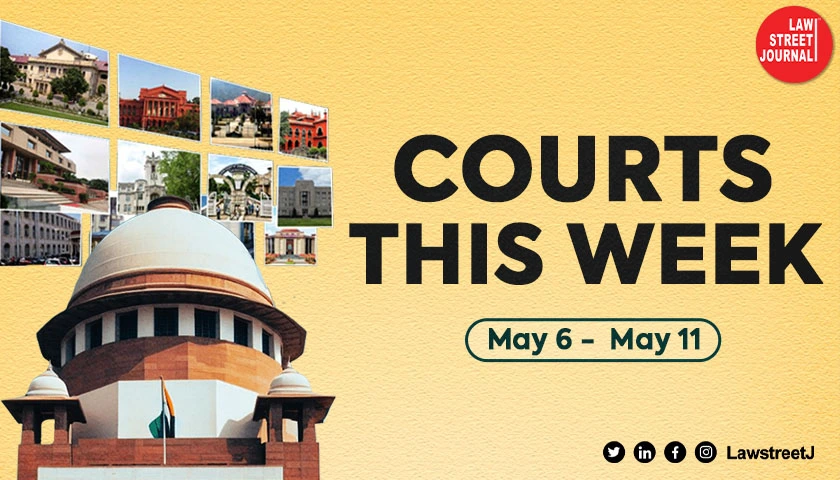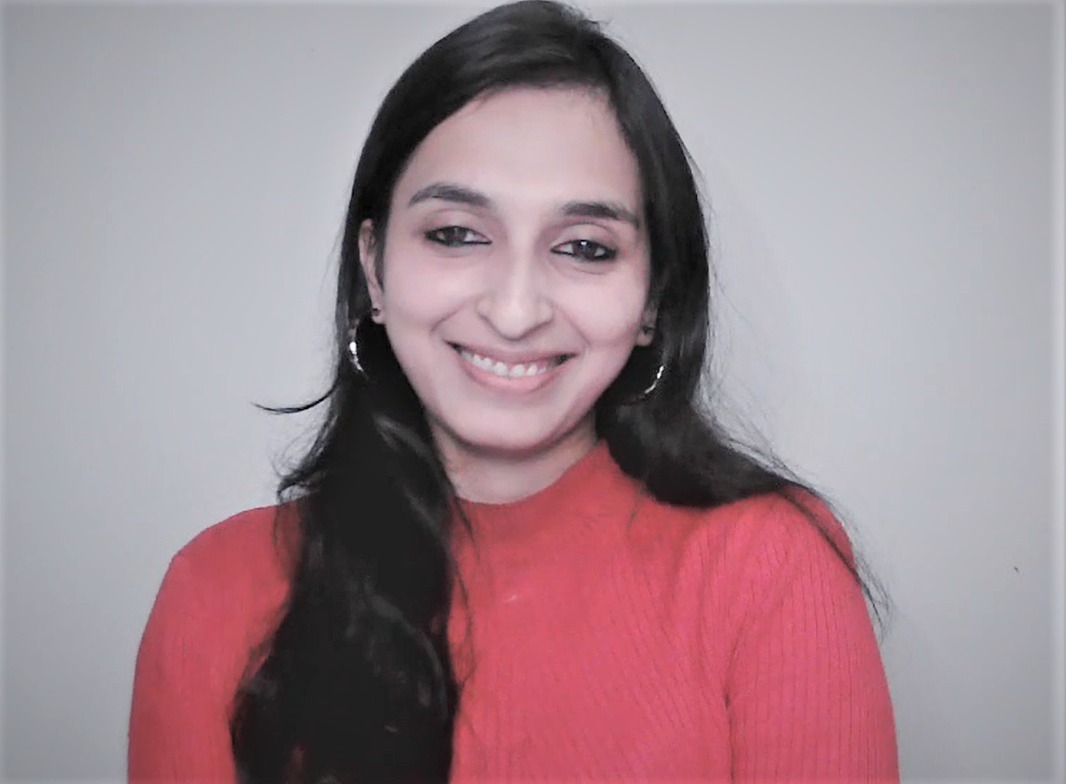A weekly round-up of the top stories from the Supreme Court of India and High Courts across the country summed up in a 3-minute read.
Supreme Court:
1. SC grants interim bail to Arvind Kejriwal till June 1 for campaign in polls
The Supreme Court on Friday granted interim bail to Delhi Chief Minister Arvind Kejriwal for campaigning till June 1, holding that a libertarian view is justified in view of ongoing 18th Lok Sabha General Elections.
A bench of Justices Sanjiv Khanna and Dipankar Datta, however, directed Kejriwal to surrender on June 2, a day after the last phase of elections.
The court also barred him from visiting the Chief Minister's office and the Delhi Secretariat as conditions for his bail.
2.'Reproductive freedom fundamental right,' SC says view of even minor important
The Supreme Court has said the right to choose and reproductive freedom is a fundamental right under Article 21 of the Constitution so where the opinion of a minor pregnant person differs from the guardian, the court must regard the view of the pregnant person as an important factor while deciding the termination of the pregnancy.
"The consent of a pregnant person in decisions of reproductive autonomy and termination of pregnancy is paramount," a bench led by Chief Justice of India D Y Chandrachud said.
3.Even non-binary persons and transgender men can be pregnant, says Supreme Court of India
Using the term pregnant person instead of pregnant woman, in a recent verdict the Supreme Court of India has observed that it recognizes that pregnancy can also be experienced by some non-binary people and transgender men.
The verdict authored by the Chief Justice of India DY Chandrachud, mentions in a footnote, We use the term pregnant person and recognize that in addition to cisgender women, pregnancy can also be experienced by some non-binary people and transgender men among other gender identities.
4.SC stays Calcutta HC's order cancelling appointment of 25,000 teachers and non-teaching staff
The Supreme Court on Tuesday stayed the April 22 Calcutta High Court order cancelling the appointment of over 25,000 teachers and non-teaching staff, in state-run and state-aided schools of West Bengal.
The top court, however, allowed the CBI to continue with its investigation into the recruitment scam but restrained it from taking any coercive action against either the candidates or the officials.
5.SC disposes of ex Jharkhand CM's plea on delay by HC in deciding validity of arrest
The Supreme Court on Friday disposed of a plea by former Jharkhand Chief Minister Hemant Soren against the delay by the Jharkhand High Court in deciding his writ petition challenging the arrest by the Enforcement Directorate in the land scam case.
A bench of Justices Sanjiv Khanna and Dipankar Datta said the instant plea has become infructuous as the High Court had delivered its judgement on May 3.
6.Benefit enjoyed by bank staff in form of interest free loans taxable as perquisites
In a setback to bank employees, the Supreme Court has said the benefit enjoyed by them as loans free from interest or at a concessional rate is a unique advantage enjoyed by them, which is in the nature of a perquisite, and thus is liable to taxation under the Income Tax Act.
A bench of Justices Sanjiv Khanna and Dipankar Datta, in its judgment on May 7, upheld the validity of Section 17(2)(viii) of the Income Tax Act, 1961 or Rule 3(7)(i) of the Income Tax Rules, 1962.
7.SC upholds minimum interview marks for Judicial Selection
The Supreme Court said while the written exam measures knowledge, the interview reveals character and capability as it upheld the prescription of minimum qualifying marks for interview for post of judges in district courts of Bihar and Gujarat.
"A person seeking a responsible position particularly as a judicial officer should not be shortlisted only by his performance on written examinations on paper, but also by the ability to articulate and engage in the role of a presiding officer in a court," a bench of Justices Hrishikesh Roy and Prashant Kumar Mishra said.
8.SC warns against hasty accusations of Parental Alienation Syndrome
The Supreme Court has said no parent should be accused of acting as a propagator or potential promoter of 'parental alienation syndrome' in child custody matters since it is a thoroughly convoluted and intricate phenomenon that required serious consideration and deliberation.
A bench of Justices Vikram Nath and Satish Chandra Sharma set aside the Delhi High Court's order which overturned the family court's judgment which granted permanent custody of two minor children to the father, a serving Army officer.
The top court noted that the High Court proceeded on an unsubstantiated assumption i.e., that allegations of parental alienation made by the mother could not be ruled out, despite the stark absence of any instances of 'alienating behaviour'.
9.Period of 3 Months for preliminary assessment under Juvenile Justice Act not mandatory: SC
The Supreme Court has held that a period of three months granted for preliminary assessment to assess whether a child in conflict with law would be tried as adult or juvenile is not mandatory but is directory in nature only.
A bench of Justices C T Ravikumar and Rajesh Bindal said this period can be extended, for the reasons to be recorded in writing, by the Chief Judicial Magistrate or, as the case may be, by the Chief Metropolitan Magistrate.
The court also held the 'Childrens Court and Court of Sessions in Juvenile Justice (Care and Protection of Children) Act, 2015 and the 2016 Rules should be read interchangeably.
High Courts:
1.Delhi HC directs NGO to approach Election Commission over deepfakes use amidst Lok Sabha elections
Refusing to intervene in the matter, the Delhi High Court has directed an NGO seeking action against deepfake videos being circulated amidst the ongoing Lok Sabha elections to approach the Election Commission of India (ECI).
Urging the petitioner NGO to trust the constitutional body, a bench led by Acting Chief Justice Manmohan said that the NGO can make a comprehensive representation to the ECI in this regard.
2.Parents must bear cost of AC in schools, says Delhi HC
Junking a plea against air conditioning charges in schools, the Delhi High Court opined that air conditioning costs have to be borne by the parents as it is a facility provided to students, no different from laboratory fees.
A division bench of Acting Chief Justice Manmohan and Justice Manmeet Pritam Singh Arora was hearing a public interest litigation by one Manish Goel against the charging of Rs. 2,000 per month for air conditioning (AC) facility in a schools classrooms.
3.Right to be considered for promotion is a fundamental right, rules Calcutta HC
The Calcutta High Court has recently ruled that an employee has no right to promotion, but does have a fundamental right to be considered for promotion.
The court was hearing a writ petition seeking direction to accept the recommendation made for promotion in the favour of the petitioner. It is always the sole and exclusive decision of the employer whether to promote an employee or not. The decision of the employer ought not to be interfered with in a casual manner. After all, the petitioner cannot assert promotion as a matter of right, it held while disposing of the writ petition.
4.Pepper Spray a 'dangerous weapon', rules Karnataka High Court
The Karnataka High Court has recently declined to dismiss a criminal case against the accused persons for using pepper spray on a complainant, holding that noxious chemical sprays like pepper sprays are dangerous weapons.
The court held that prima facie there was no imminent threat or danger caused hence pepper spray should not have been used as a means of private defence. Since there exists no determination on the usage of pepper spray in India, the court referred to the case of People v Sandel, wherein a U.S. court has held that noxious chemical sprays, like pepper sprays are dangerous weapons.















